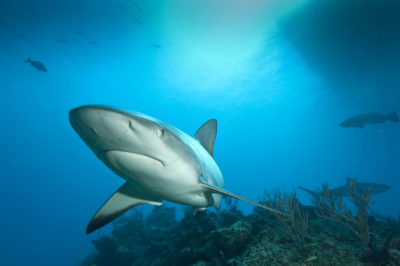
The Peninsula Hotels chain, Asia’s oldest hotel company, will contribute to growing global efforts to reduce the demand for shark fin products by banning the consumption of shark fin at its hotel restaurants and banquet operations, effective January 1, 2012.
By banning shark fin, The Peninsula Hotels hopes to “inspire other hospitality companies to do the same,” spreading awareness of the need to “preserve the marine ecosystem for the world’s future generations” says Chief Executive Office, Mr. Clement Kwok.
WildAid, a conservation organization that’s been at the forefront of the international shark campaign for over a decade, applauds this positive action taken by The Peninsula Hotels in taking shark fin off its menu. “Sharks across the world are under increasing threats from consumer demand for shark fin soup, resulting in massive depletion of sharks and cascading negative effects in marine ecosystems,” says Peter Knights, WildAid’s Executive Director.
The Peninsula Hotels’ ban of shark fins exemplifies how businesses can become leaders in conservation, dissuading people from purchasing wildlife products and spreading awareness of the detrimental effects of the illegal and unsustainable wildlife trade. Paired with WildAid’s Chefs Against Shark Fins campaign, and outreach efforts of its celebrity ambassadors, such as Yao Ming and Sir Richard Branson, the support of the hospitality sector can play a major role in halting the rapid decline of threatened shark species and deteriorating marine ecosystems.
Not only is the growing global demand for shark fin leading to the collapse of many shark populations worldwide, the process of shark finning is also cruel and wasteful. Often caught as bycatch, sharks are hauled on deck, their fins are hacked off, and their remains are tossed overboard to drown or bleed to death, with 98% of the shark going to waste.
Visit WildAid’s Shark program page to read more.
Stay in touch and get the latest WildAid updates.
SIGN UPAbout WildAid
WildAid is a non-profit organization with a mission to protect wildlife from illegal trade and other imminent threats. While most wildlife conservation groups focus on protecting animals from poaching, WildAid primarily works to reduce global consumption of wildlife products such as elephant ivory, rhino horn and shark fin soup. With an unrivaled portfolio of celebrity ambassadors and a global network of media partners, WildAid leverages more than $308 million in annual pro-bono media support with a simple message: When the Buying Stops, the Killing Can Too.
Journalists on deadline may email communications@wildaid.org